Choosing the right care for your aging loved ones can be overwhelming. With so many options available, it’s hard to know which is best suited to their needs.
Two of the most common choices are assisted living and skilled nursing, each offering distinct levels of care and support. But what exactly sets them apart? Assisted living provides a blend of independence and assistance with daily activities, while skilled nursing offers comprehensive medical care and constant supervision—they are not interchangeable.
It’s important to know the difference so that you or your loved one can receive the support you need. The wrong choice could lead to dissatisfaction, inadequate care, and increased stress for everyone involved.
The Simple Difference: Daily Support vs. Medical Care
At a glance, assisted living and skilled nursing share a goal: keeping older adults safe, engaged, and well cared for. The key difference lies in how much medical care is needed.
Assisted living is for seniors who are mostly independent but benefit from help with daily tasks. It balances privacy, choice, and support.
Skilled nursing is intended for those who require 24/7 medical oversight, complex clinical care, or short-term rehabilitation after a hospital stay.
Understanding this distinction helps families match the right setting to a loved one’s current needs while planning for future changes.
What Assisted Living Looks Like Day to Day
An assisted living community is designed to make everyday life easier, safer, and more enjoyable without taking away independence. Residents live in private or semi-private apartments, bring personal furnishings, and set their own routines. Team members are available around the clock, but care is delivered only as needed.
Common supports include:
- Help with bathing, grooming, and dressing
- Medication reminders and coordination with physicians
- Gentle mobility support and fall prevention
- Escort services to meals and activities
Just as important, assisted living provides a lifestyle that many seniors appreciate: fewer chores, more social time, and the freedom to choose how to spend each day.
Services and Amenities That Enhance Independence
Assisted living focuses on practical help and a rewarding daily experience. Typical offerings include:
- Chef-prepared meals with flexible dining options and special diets
- Housekeeping, laundry, and linen service
- Scheduled transportation for appointments and errands
- On-site wellness programs, fitness classes, and walking groups
- Life-enrichment activities like art, music, games, faith services, and outings
- Safety features, such as emergency response systems and secure entrances
These services remove barriers that often keep older adults homebound or at risk. When meals, medications, and housekeeping are handled, energy can shift back to hobbies, friendships, and family.
Who Thrives in Assisted Living?
Assisted living is ideal for seniors who:
- Are mostly independent but would benefit from help with daily activities.
- Have mild to moderate memory challenges but remain generally safe with support.
- Want to downsize from home maintenance and reduce fall risks.
- Feel isolated and would enjoy a built-in social network.
- Need consistent medication management and wellness monitoring.
A helpful rule of thumb: if your loved one does not require around-the-clock nursing care but would benefit from reliable assistance and community life, assisted living could be a strong fit.
When Skilled Nursing Is the Better Choice
Skilled nursing is designed for people with complex medical needs that require licensed nursing care 24/7. Examples include:
- Recovery and rehabilitation after a hospital stay or surgery
- Wound care, IV therapy, or feeding tubes
- Advanced heart, lung, or kidney disease that needs close monitoring
- Frequent, specialized clinical interventions directed by physicians
Many families consider skilled nursing for short-term rehab and then transition to assisted living once medical needs stabilize. Think of skilled nursing as clinical care first, while assisted living is lifestyle and support first.

How to Decide: Practical Steps for Families
Making this decision is easier when you focus on practical indicators rather than labels. Consider these steps:
Assess Daily Living Needs
- Can your loved one bathe, dress, and manage medications without reminders or help?
- Have there been recent falls, missed doses, or skipped meals?
Review Current Medical Needs
- Does your loved one need regular nursing treatments or continuous monitoring?
- Are physicians recommending rehabilitation or specialized care?
Consider Safety and Social Well-Being
- Is isolation a concern?
- Would planned activities and neighbors improve mood and motivation?
- Would a safer environment reduce stress for everyone?
Weigh Cost and Coverage
- Assisted living is generally more affordable than skilled nursing because it focuses on daily support rather than clinical care.
- Check long-term care insurance, veterans’ benefits, and personal budgets to understand options.
Talk Openly as a Family
- Ask your loved one what they value most: privacy, routine, social time, or health oversight.
- Tour communities together so everyone can see the environment and ask questions.
Why Many Families Choose Assisted Living First
Assisted living often strikes the right balance: enough help to stay safe, plus the freedom to live life on your terms. Families tell us they notice:
- Renewed energy once daily stresses lift
- Better nutrition and hydration thanks to regular, enjoyable meals
- Fewer hospital visits due to consistent medication management and wellness checks
- New friendships and a sense of purpose through activities and clubs
- Peace of mind knowing support is there when needed—day or night
These benefits add up to measurable improvements in quality of life. For many seniors, the right environment makes all the difference.
The Bottom Line
Assisted living and skilled nursing are not the same. Assisted living emphasizes independence with supportive care, social connection, and a comfortable lifestyle. Skilled nursing is a medical setting for those who need continual clinical oversight. Matching your loved one’s needs to the right environment leads to better health, more joy, and greater peace of mind for the entire family.If you’re exploring options, we invite you to learn more and see the difference for yourself. Schedule a visit with Valley View Senior Living to talk with our team, tour the community, and discover how we can support your loved one with the right level of care at the right time.


